We’re proud to announce the 2023-2024 Clinical Preceptors of the Year and 2024 Nurses of Influence Recipients
Clinical preceptors are highly committed to academic programs and excel in both clinical practice and community service. They play an essential role in providing students with valuable hands-on learning experiences in real-world healthcare settings. DNP students, depending on their track and stage, spend up to three days per week over four quarters in clinical placements, learning alongside these skilled mentors. We’re thrilled to recognize these outstanding preceptors and their dedication in educating our next generation of advanced practice registered nurses and advanced systems and population health experts. Read more about these preceptors and their advice to nursing students.
2023-2024 Clinical Preceptors of the Year
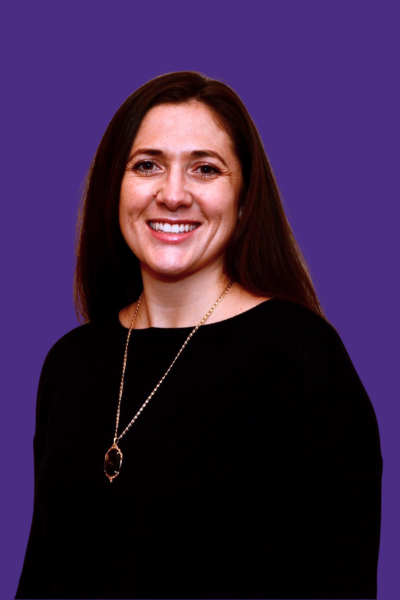
Chelsea Miller, DNP, ARNP, ACNPC-AG
What inspired you to become a clinical preceptor?
Once I returned to Washington, I was eager to give back to my alma mater as I was now in a unique position to provide the Adult-Gerontology Acute Care Nurse Practitioner students with a critical care rotation where they could manage a wide range of disease processes and perform all of the procedures they received training for. I was eager to provide mentorship and help develop the critical thinking skills needed to transition from the bedside RN to ARNP provider role.
What advice would you give to our nursing students?
Enter every clinical experience prepared with a genuine curiosity and eagerness to learn. This will shine through and your preceptors and their colleagues will go above and beyond to teach and provide learning opportunities. Treat every clinical rotation like a job interview!
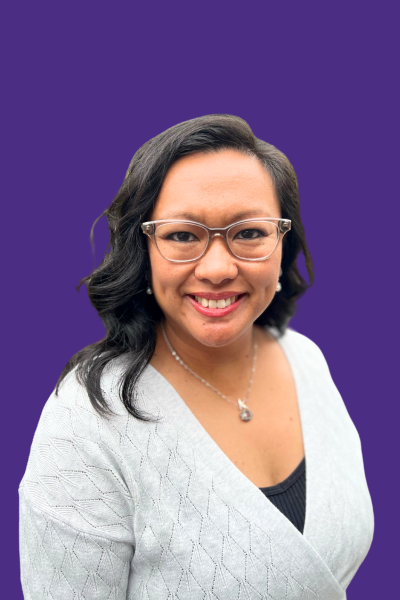
Jennifer Ugale Mercado, NP-C
What inspired you to become a clinical preceptor?
I was inspired by a colleague who started precepting students. I was reminded, by having students in our clinic, of the energy that students bring, an energy and excitement for learning that I remember having as a student. Students have a way of rekindling that spirit that brought us to the profession in the first place. I decided to become a preceptor because I felt inspired to put myself in a position to harness and nurture that energy.
What advice would you give to our nursing students?
I hope that you continue to find joy in learning and to seek out the “preceptors” all around you as you graduate and start your own practice. I can’t think of a day of work that I didn’t need to look something up, learn something new/put something new into practice, or work through a question/problem with a colleague. My other hope is that you find work-life harmony and hold onto the things that fill your mental, emotional, and physical buckets because it is really true that we take better care of people when we take care of ourselves.

John Okrent, MD
What inspired you to become a clinical preceptor?
I am energized by precepting and teaching. The residents and students keep my on my toes and inspire me to keep learning. I want to be the best provider I can be so that I can set the best possible example. It makes the work doubly rewarding. I hope to show students that the work we do in medicine is social justice work and it is our privilege to do it.
What advice would you give to our nursing students?
Remember that this a profession of service and partnership and that all of our successes here will be in the spirit of service and partnership. We are here in service to our patients, and in partnership with them.
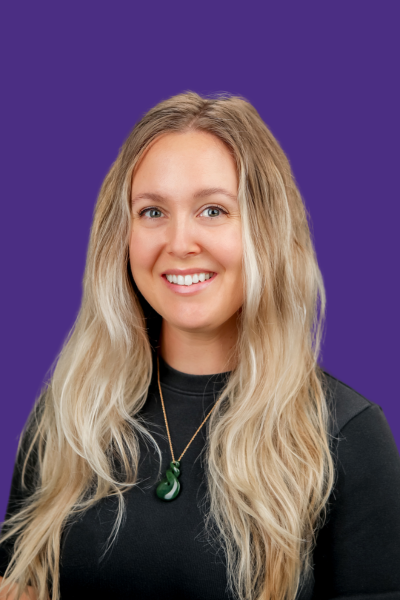
Noelle Brodeur, CNM
What inspired you to become a clinical preceptor?
I love learning about people’s paths to midwifery and supporting them along their journey. I believe being a preceptor helps keep my clinical skills up to date and I learn just as much from my students as they learn from me.
What advice would you give to our nursing students?
First, none of us will always have all of the answers; use this time as a student to become comfortable asking for help. Second, find a self-care routine that works for you and practice it often.
Team 8 – APP Inpatient Team

Teneisha Hunt DNP, ARNP, CPNP-AC/PC
What inspired you to become a clinical preceptor?
I feel it is important for all of us to do our part in teaching and mentoring the future generation of nurses and advance practice nurses.
What advice would you give to our nursing students?
You can do it! Continue to be engaged, ask questions, find learning opportunities and you will ultimately reach your goals!
Amber Mashuta, ARNP
What inspired you to become a clinical preceptor?
I was fortunate to have had incredible mentors during my own training. Their guidance and support inspired me to give back and become a preceptor myself.
What advice would you give to our nursing students?
Never stop asking questions. Curiosity is the key to learning and growing in your nursing career.
Rebecca Stevenson, PA-C
What inspired you to become a clinical preceptor?
I have always enjoyed teaching and am incredibly grateful for the wonderful preceptors who have helped shape my clinical career. Paying that forward is very rewarding.
What advice would you give to our nursing students?
Continue to be engaged and curious. Every new clinical exposure is an opportunity for growth.
Samantha Finley, ARNP

Missy Lein, MSN, ARNP-CS, PCNS-BC
What inspired you to become a clinical preceptor?
I have loved nursing since my very first clinical rotation! It’s an honor to share something you love so much with others and help them move forward with their own goals and aspirations.
What advice would you give to our nursing students?
Surround yourself with an encouraging community (of nurses and non-nurses) and stay curious. There are is always more to learn and your community will help support and guide you through the ups and downs.

Tera Johnson, ARNP
What inspired you to become a clinical preceptor?
To help teach and inspire the future of pediatric healthcare providers.
What advice would you give to our nursing students?
The road to being a practitioner is paved with much stress, anxiety, and little sleep. But the reward is getting to care for the neonates, infants, children and adolescents of our community who are in desperate need of quality and compassionate healthcare. It is an honor.
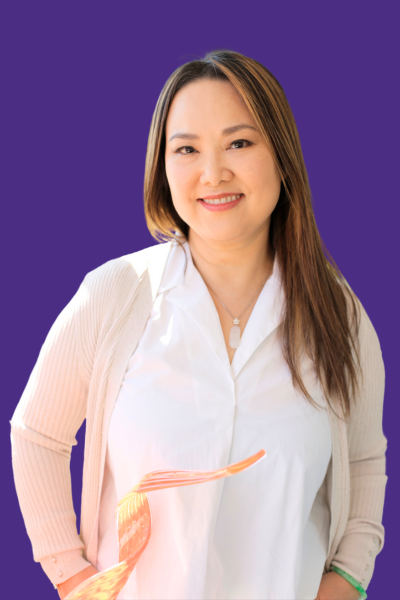
Susan Lee, Ed.D, M.Ed., EMPA
What inspired you to become a clinical preceptor?
What inspired me to become a clinical preceptor is the honor and privilege of being part of an esteemed institution like the University of Washington (UW). Working closely with students allows me to play a key role in bridging the gap between academia and the underserved communities I have committed my work to. The students’ enthusiasm, drive, and desire to learn inspire me every day. They remind me of the importance of fostering a sense of connection between the academic environment and the real-world challenges faced by vulnerable populations.
Watching students grow, not only in their clinical skills but also personally, and in their ability to make a difference in these communities, fuels my passion for teaching. Their dedication and willingness to contribute positively to society aligns with my own values, reinforcing the importance of developing well-rounded, compassionate healthcare professionals who are committed to serving others.
Additionally, my decision to become a clinical preceptor was heavily influenced by the guidance and mentorship I received from my own professors, particularly Dr. Marla Salmon, Dr. Jenny Tsai, and Dr. Elaine Walsh. Their leadership, mentorship, and sponsorship left a profound impact on me. They encouraged me to think critically, pushed me to become a better person, and provided invaluable support along the way. Now, I feel compelled to pay that forward by offering the same guidance, mentorship, and coaching to the next generation of healthcare professionals.
Being a clinical preceptor allows me to give back to both the institution that shaped me and the communities I care deeply about. It’s about creating a positive ripple effect—supporting students in their growth while ensuring they have the tools to contribute meaningfully to society and the health of underserved populations.
What advice would you give to our nursing students?
The advice I would give to nursing students is to hold onto the enthusiasm, drive, and compassion that brought them into the field. These traits are what make great nurses stand out and allow them to deeply connect with patients. Always nurture your empathy, as it will guide you through the toughest times, helping you to understand and care for others with genuine heart. Remember to reflect on your own experiences—they will help you relate better to others and provide more compassionate care. Be proud of your achievements but stay humble, because nursing is a journey of continuous learning.
Be lifelong learners. The healthcare field is always changing, so stay curious and seek knowledge from every corner, including your patients and colleagues. Engage with people who offer different perspectives and use those insights to grow. Never be afraid to ask questions or challenge norms—it’s through courage that true growth happens.
I also urge you to embrace creativity and flexibility. Nursing is both a science and an art, and creative problem-solving will often be your greatest asset in providing quality care. Don’t hesitate to think outside the box, especially when faced with challenges.
In addition to providing care, remember that nursing involves collaboration. Be a willing partner with community organizations and roll up your sleeves to work alongside them. Your role as a nurse isn’t confined to the hospital—it extends to the community, where real partnerships can make a lasting impact. Your resilience in the face of adversity will inspire others, and it’s during the toughest times that your strength will shine the most.
Lastly, always be open to mentoring and coaching future nursing students. The support and guidance you receive now should be shared with the next generation. Be ready to mentor, guide, and uplift others, knowing that your experience can help shape the future of nursing.
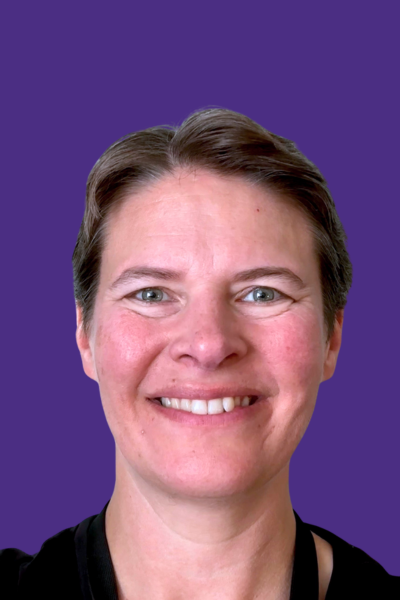
Danielle DeOliveira, MSN, ARNP, PMHNP-BC
What inspired you to become a clinical preceptor?
I believe it is the duty of all psychiatric NPs to contribute to the education of our upcoming workforce. When ARNPs are trained by other professions they enter practice without a full appreciation of our role, both the limits and the strengths. I want to help build students’ confidence, not only to practice effectively, but to move our profession forward as well.
I also love having students because it pushes me to be a better provider. I get to hear about the new information they are learning, discuss new ideas, and push myself to communicate my thought processes more effectively.
What advice would you give to our nursing students?
Don’t practice in a bubble. Make sure to reach out to your cohort, colleagues, and mentors, reach out to your professional organizations. Pay attention to the legislation that affects your practice and your license. Remember that no one else is looking out for your career, so make sure you are.
2024 Nurses of Influence Recipients
The UW School of Nursing is excited to recognize the exceptional contributions of our nurses and nursing leaders. These awards highlight the close connection between the UW School of Nursing and our community partners, and honor the countless ways the nursing profession enhances health and impacts lives. Congratulations to these outstanding individuals who are committed teaching our #HuskyNurses. Read more about what their nominators said about them.
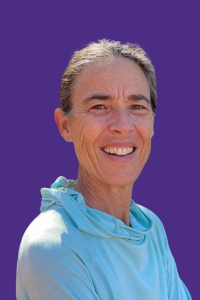
Karin Huster BSN ’05, MPH ’13, Emergency Medical Referent, Médecins Sans Frontières (MSF) (Doctors Without Borders)
Karin Huster spent nine years as an RN in Harborview’s Trauma ICU before focusing on humanitarian emergencies. Her work includes field epidemiology and advising USAID. She worked with Syrian refugees in Lebanon (2012-13), on the Ebola epidemic in West Africa (2014-16), and responded to outbreaks in the DRC and Haiti. She aided in crises in Nigeria (2017), Iraq (2017), Bangladesh (2018), and now Gaza (2024), advocating for healthcare in conflict zones. She is a heroic nurse and advocate for the communities she serves.
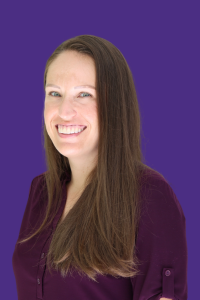
Holly Vance, Manager (Wound, Ostomy, Limb Preservation, & Amputation Services [WOLPAS]), Harborview Medical Center
Holly exemplifies nursing through her clinical expertise, compassionate care, and commitment to her patients and community. As a Certified Wound Ostomy Nurse and Clinical Nurse Educator, she has made significant contributions to Harborview Medical Center and beyond. Her leadership, dedication to evidence-based practice, and passion for mentoring future healthcare providers make her an exceptional candidate for this prestigious award.
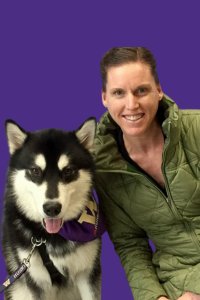
Katie Haerling, Graduate Program Coordinator/Professor, UW Tacoma School of Nursing & Healthcare Leadership
Dr. Haerling was instrumental as a subject matter expert (SME) and collaborator in creating a new Washington Administrative Code for nursing education around simulation. They did multiple presentations for public hearings to inform the Washington Board of Nursing board members during public meetings, providing insight and education to inform the public and members, which will have a longstanding impact on nursing practice and the safety of the public.
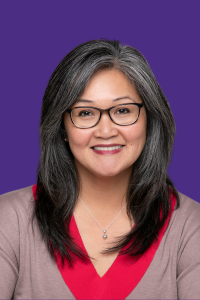
Sofia Aragon, Executive Director, Washington Center of Nursing
Ms. Sofia Aragon is being nominated for the Distinguished Diversity Advocate Award for her tireless advocacy for diverse providers and underserved populations through policy and service. As Executive Director of the Washington Center of Nursing, she has worked to address the nursing shortage and support underrepresented nursing students. She developed educational tools to assist families in supporting nursing students and created a workshop to encourage BIPOC nurses to become faculty. Her nominator stated, ‘Ms. Aragon has continually designed systems to increase diversity in practice, collaborating with communities to reduce disparities and improve lives.’
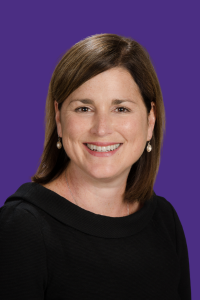
Keri Nasenbeny, Chief Nursing Officer, Harborview Medical Center
From the start, Keri immersed herself in the frontline experience, working alongside clinical staff to understand their challenges. She listens to and advocates for her teams, creating new leadership roles, supporting shared governance councils, and ensuring staff access to resources like Healthy Work Environment seminars. Keri also increased funding for the Harborview Medical Center Ambassador Awards, helping nurses present at national conferences, all while demonstrating authentic empathy and a commitment to improving the workplace.